Family Commemorations, for Memories That Shall Not Be Forgotten
In early winter, a feeling of grief filled the Memorial Hall. On December 3, ahead of the 10th national memorial day for the victims of the Nanjing Massacre, a family commemoration activity for Nanjing Massacre victims was held in front of the Wall of Tears in the Memorial Hall.
Family Commemorations•Recalling
As the ceremony started, Memorial Hall staff members carried flower baskets, arranged with yellow and white chrysanthemums as well as pine and cypress branches (a symbol of mourning), towards the Wall of Tears. Then people walked to the baskets shaped like the Chinese character for mourning and bowed three times to mourn for those who died in the Nanjing Massacre.
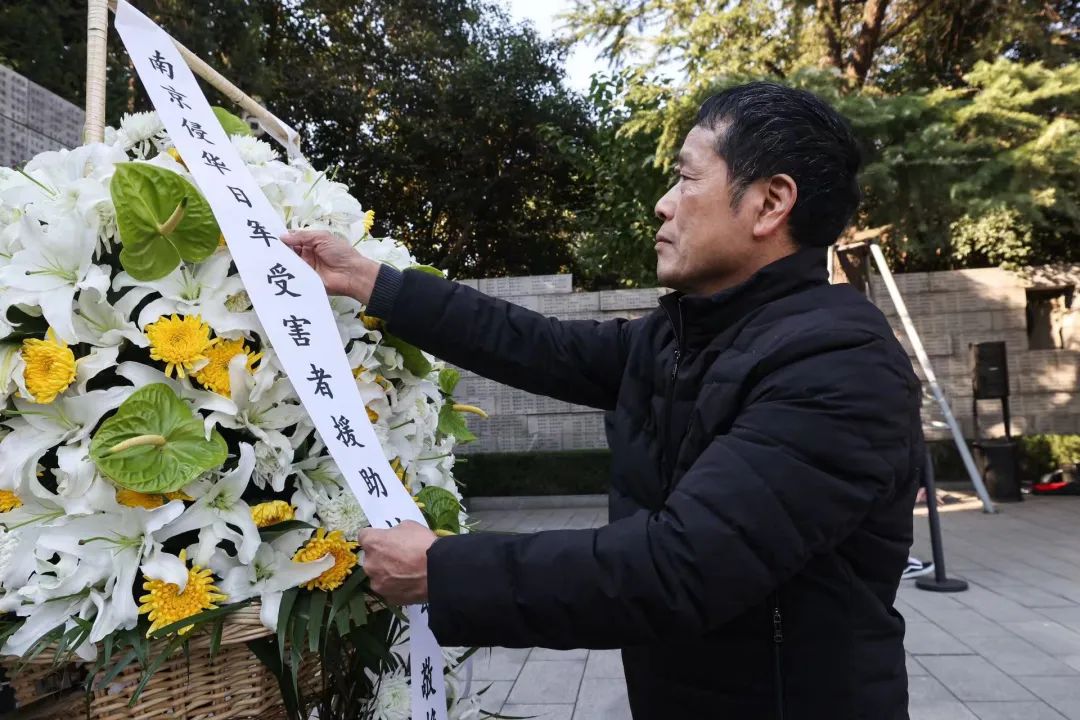
Cao Yuli delivered a speech at the ceremony as a descendant of Nanjing Massacre survivors and an inheritor of historical memories of the massacre. “When my parents were alive, their greatest wish was to see Japan acknowledge the history behind the Nanjing Massacre. They never forgot their mission of ‘witnesses to history’ and always reminded us not to forget our family members and other Chinese compatriots slaughtered during the massacre. They asked us to pass on the historical truth behind the massacre from generation to generation.”
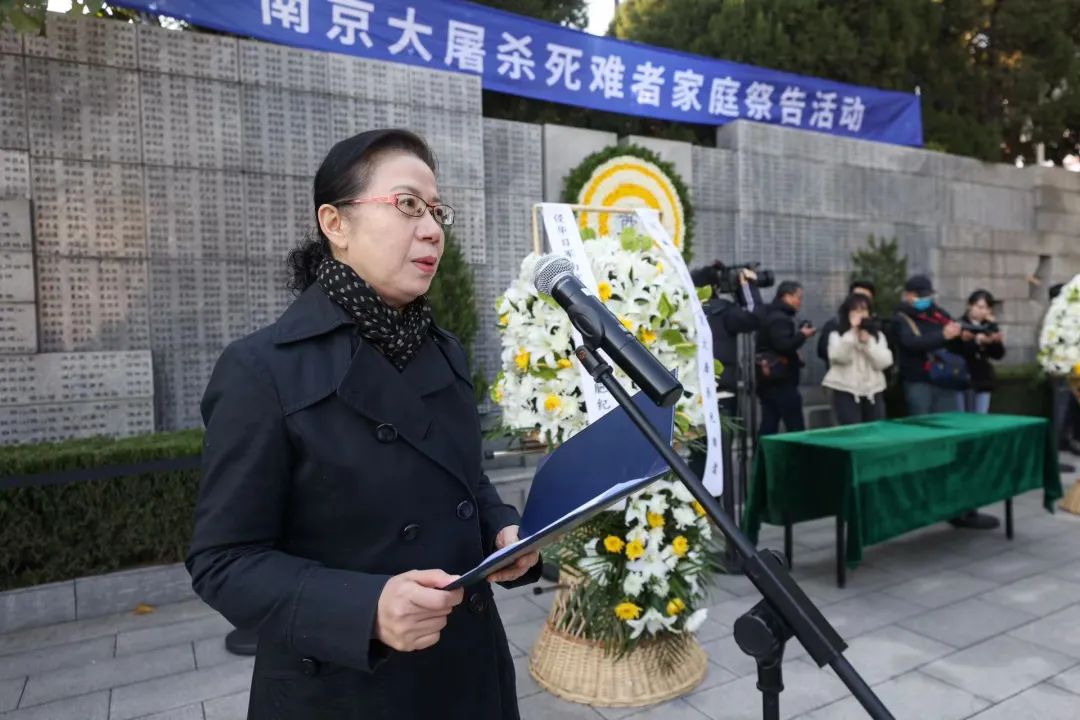
Zhou Feng, deputy director of the Publicity Department of the Communist Party of China Nanjing Municipal Committee and director of the Memorial Hall, attended the ceremony. “The Nanjing Massacre is not just a history written in the books. It also recorded the sufferings of numerous individuals and families. More importantly, it is a history that belongs to every Chinese. The tragedy of history cannot be forgotten. The names of Chinese compatriots who died in the tragedy inscribed on the wall will forever serve as a reminder that Nanjing will not forget that miserable history 86 years ago.”
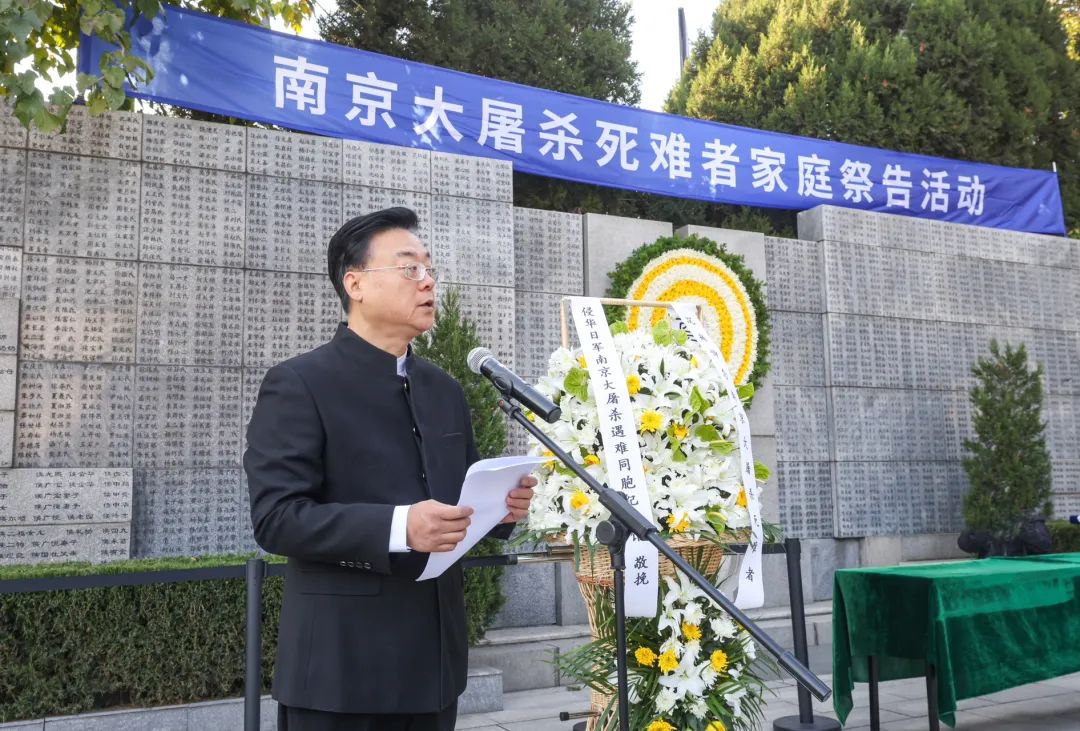
Holding flowers in their hands, survivors Ai Yiying, Xia Shuqin, and Liu Minsheng walked over to the wall with the help of their families, and once again presented flowers to their loved ones and expressed their sorrow over their death.
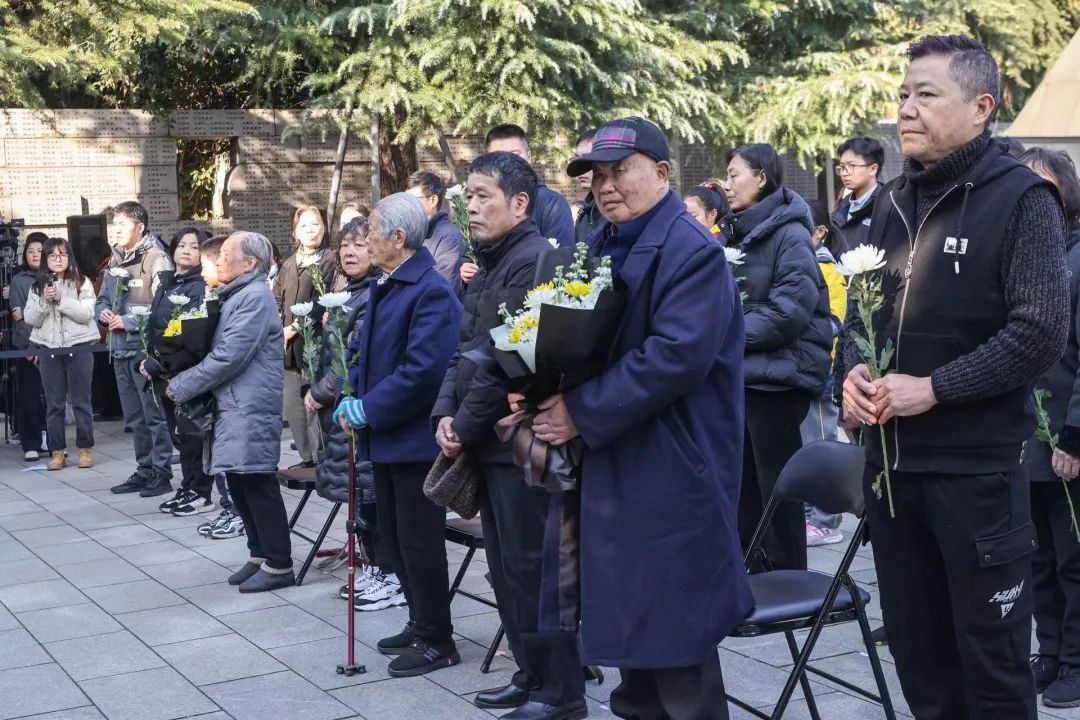
“I’ll come to see them as long as I can!" 94-year-old Xia waddled to the wall to mourn for her seven family members cruelly killed in the atrocity. She wept and told them how much she misses them.
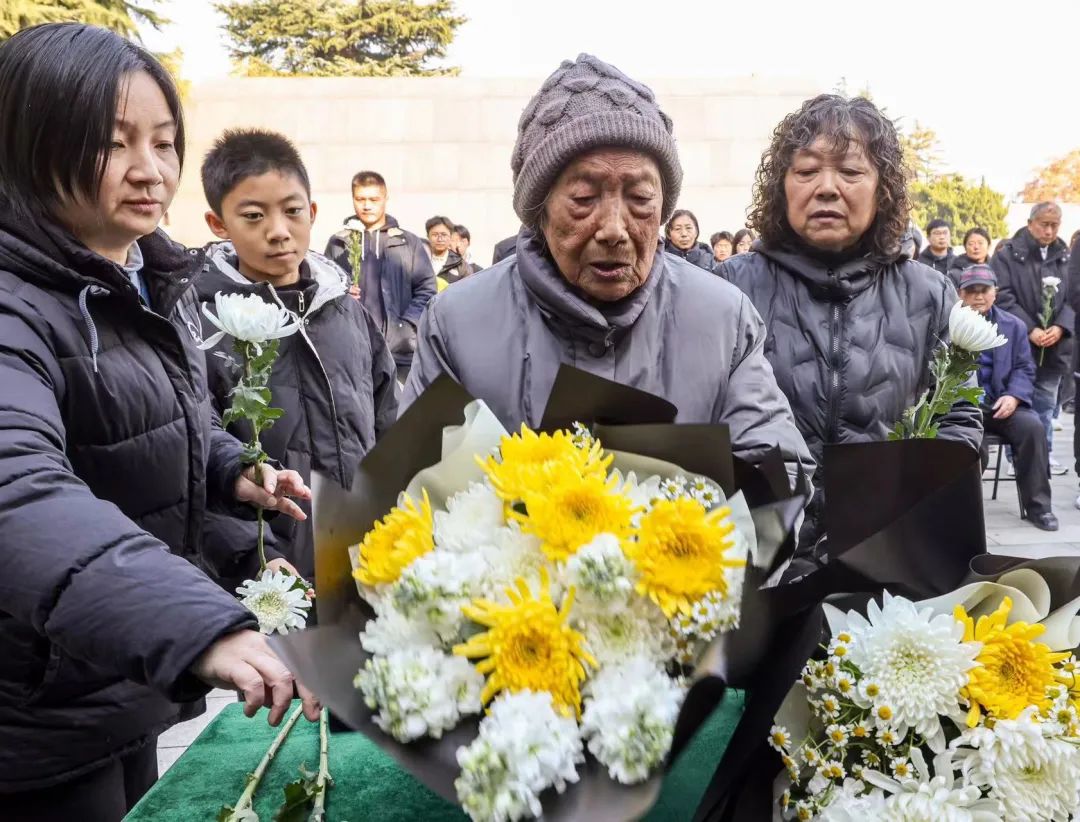
Accompanied by her son Huang Xinghua, 95-year-old Ai presented flowers to the family members she lost. “Back then, almost all the young males in the Ai family were killed by the Japanese soldiers, leaving behind women and their children. Life was really hard then. My mother has always talked about that painful experience over these years. She hopes that we must remember it,” said Huang.
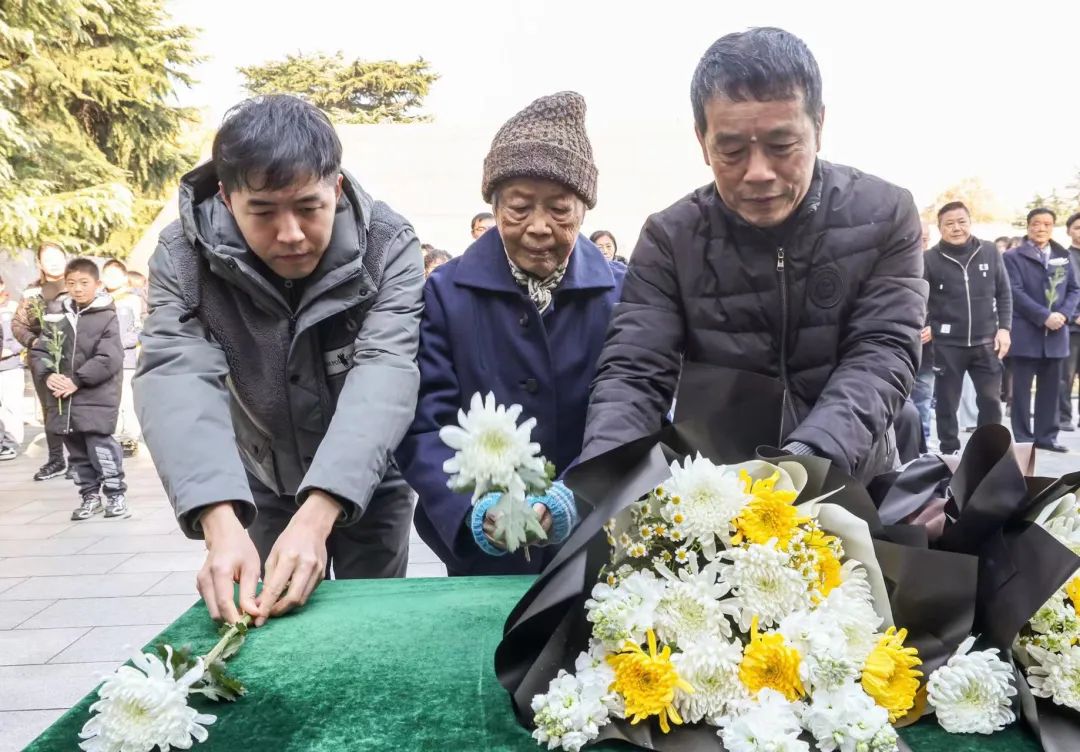
Standing in front of the wall, 89-year-old recalled the past. “My family took shelter in a refugee camp. I was very young at the time. I kept crying when the Japanese soldiers broke in. One soldier just came to me and stabbed me. All the young males, including my father, were taken away by them. And they never came back.”
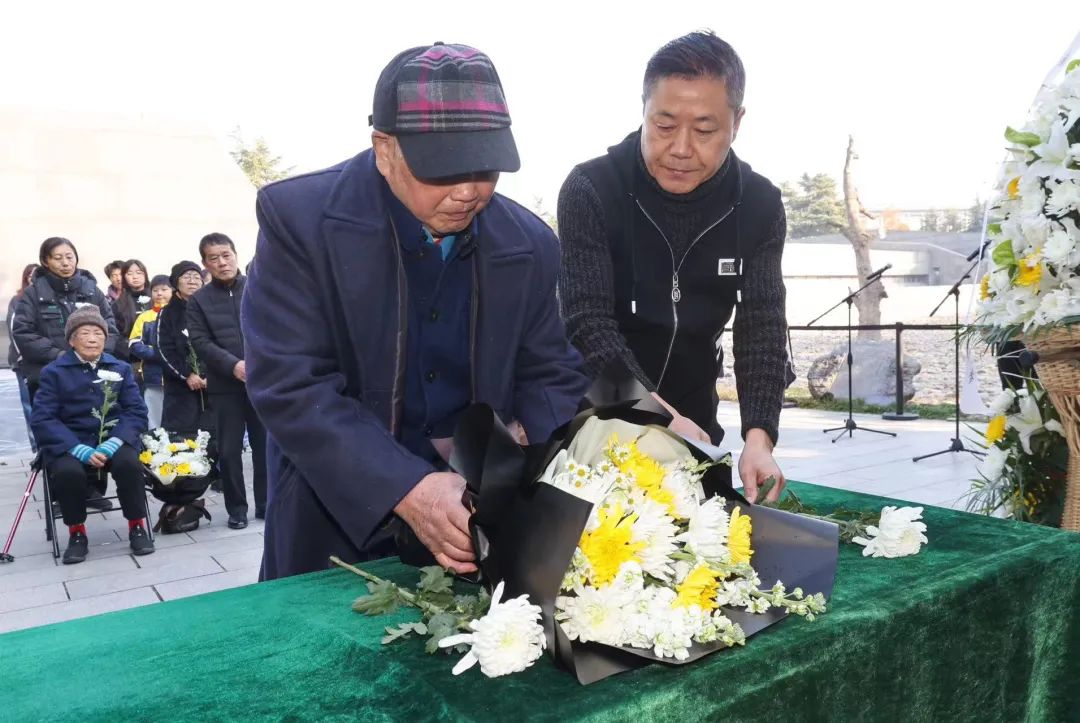
At the ceremony, 20 representatives of the victims’ family dependants, including Zhang Xueping, Huang Xinghua, Ge Fengjin, and Cao Yuli, laid floral tributes one by one.
Memory•Carrying forward
Young people are becoming an increasing presence at the family memorial event. Representatives of the descendants of Nanjing Massacre survivors and student representatives “repainted” the names engraved on the wall as a way to show their grief.
Xia Yuan, a descendant of Nanjing Massacre survivors and an inheritor of historical memories of the massacre, and her son were among them. The wall is engraved with the names of their family members who were killed in the massacre, and “repainting” them with striking colors helps make their names seen easily by visitors, and make the history always engraved in their minds, Xia said.
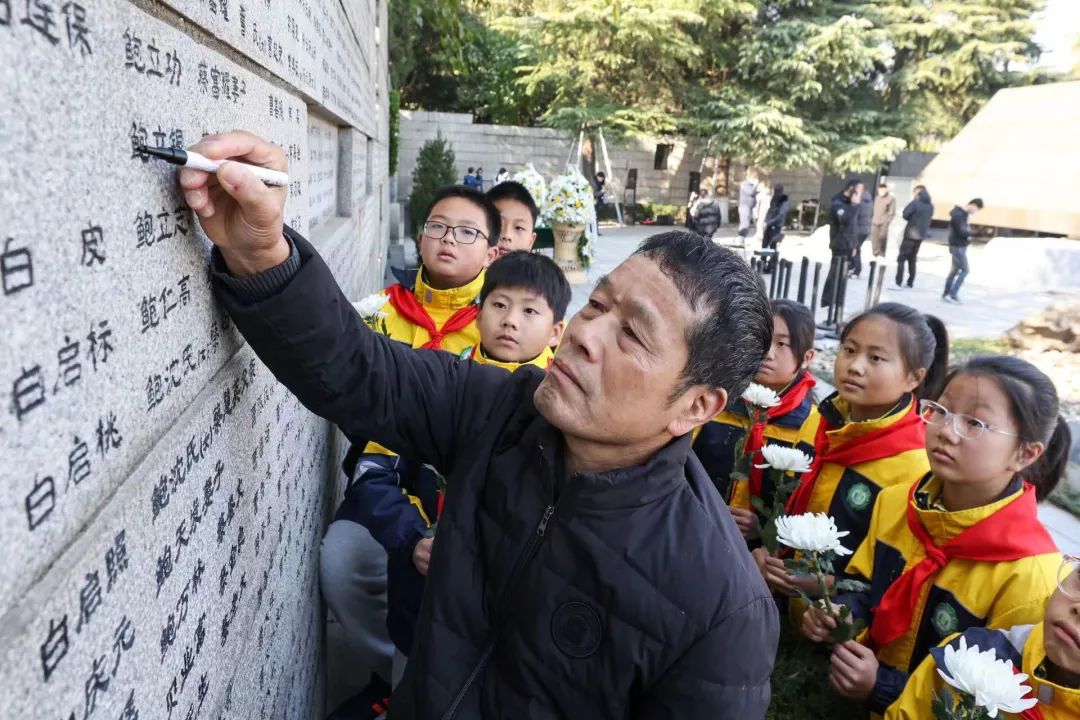
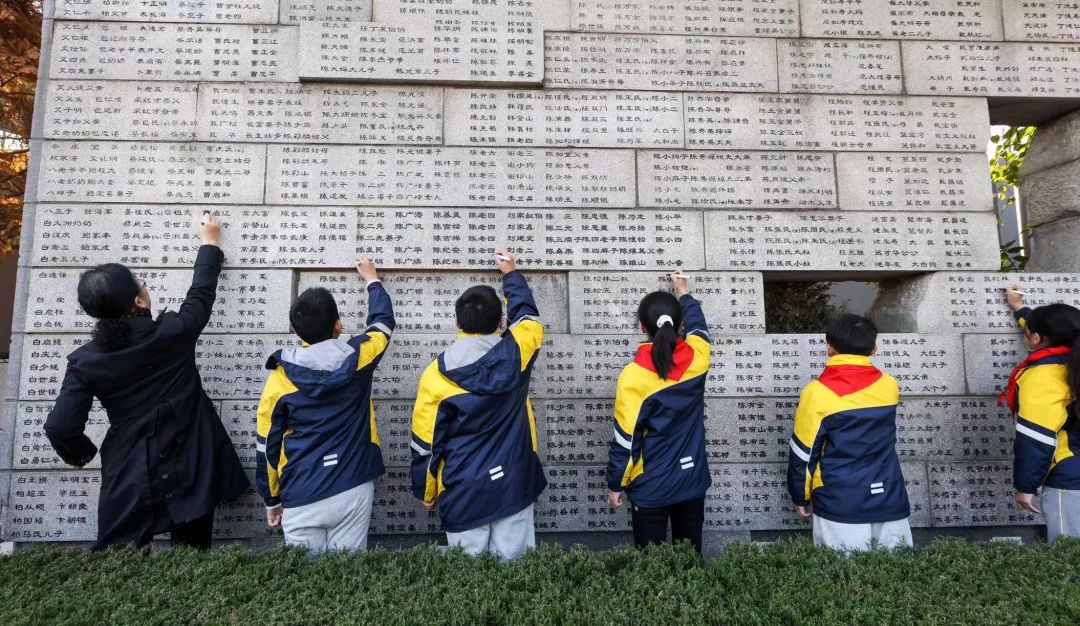
To encourage young people to pass on the history memory, the Memorial Hall invited more than 30 teenagers from Nanjing Xiaozhuang University First Experimental Primary School, Academy of Fine Arts of Jiangsu Second Normal University, and Communication University of China, Nanjing to the event.
For Ding Yufeng, a student at the Academy of Fine Arts, Jiangsu Second Normal University, “repainting” the names of Nanjing Massacre victims not just makes the names themselves clearer, but also makes the history clearer. “The densely arranged names on the wall seem to serve as an eternal reminder that we shall not forget the pain they once suffered. I hope these names could be engraved forever, and this history could be remembered forever,” said Ding.
Yan Zihao from Communication University of China, Nanjing and Liu Ziye from Nanjing Xiaozhuang University First Experimental Primary School were another two student representatives. At the event, with their heart full of sorrow, they read out the names and ages of 30 victims and where and how they were killed, to extend their deep condolences to the 300,000 innocent lives lost in the atrocity committed by the Japanese invaders. “Mao Deming, shot dead by the Japanese army at Neiqiaowan No. 48, at the age of 37; Wang Youzhong, stabbed to death by the Japanese army at Andemen, at the age of 39; Shi Xuehong, shot dead by the Japanese army at Xijia Datang No. 41, at the age of 40...”
“300,000 Chinese compatriots were cruelly slaughtered. Each and every of them should be remembered. Teenagers in the new era should love our country, our home, and work hard to prevent the painful history from happening again,” Yan said. “Through the reading activity, I have gained a better and deeper understanding of the history of the Nanjing Massacre. And I have fully realized the importance of remembering history and cherishing peace,” said Liu.

